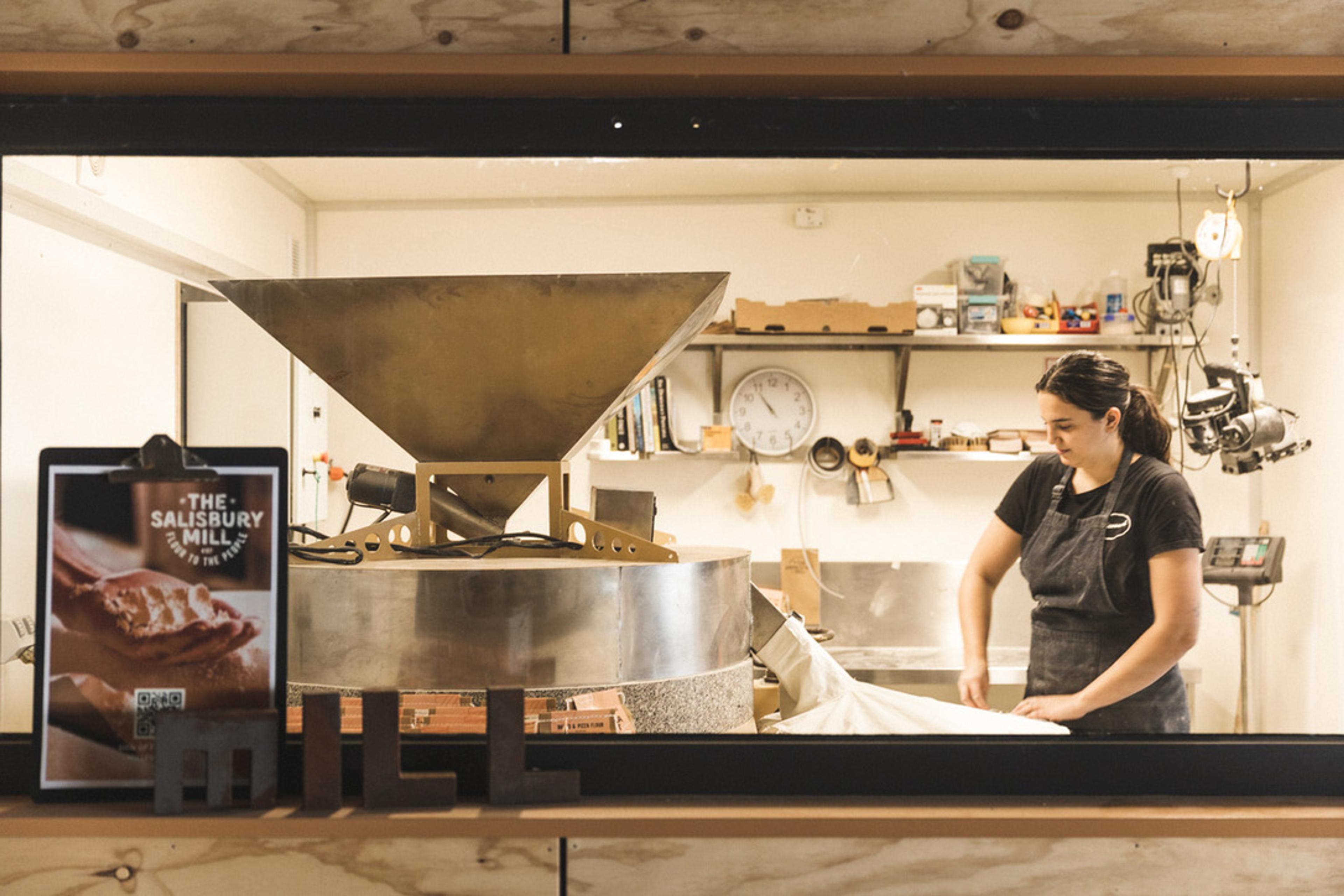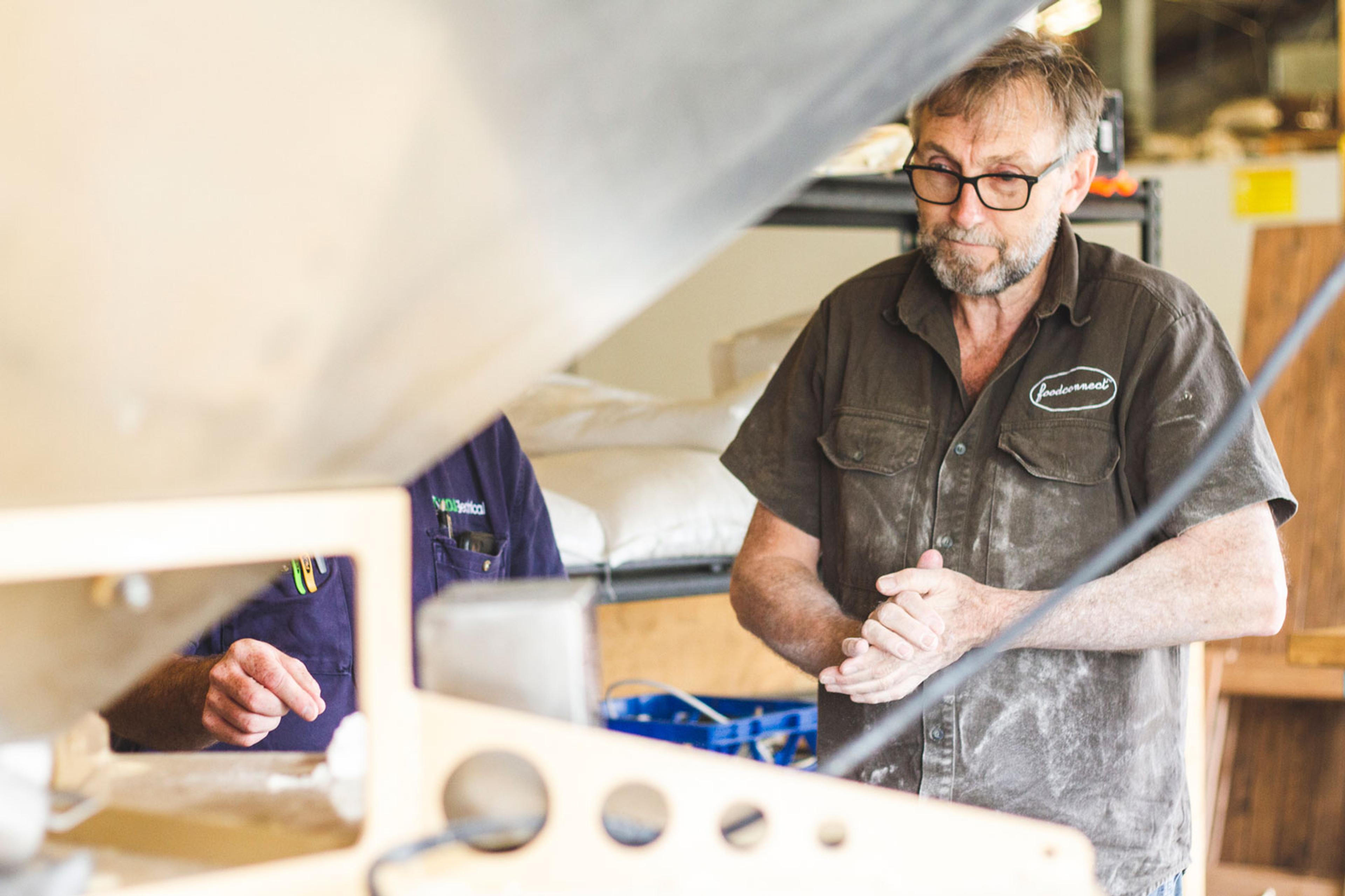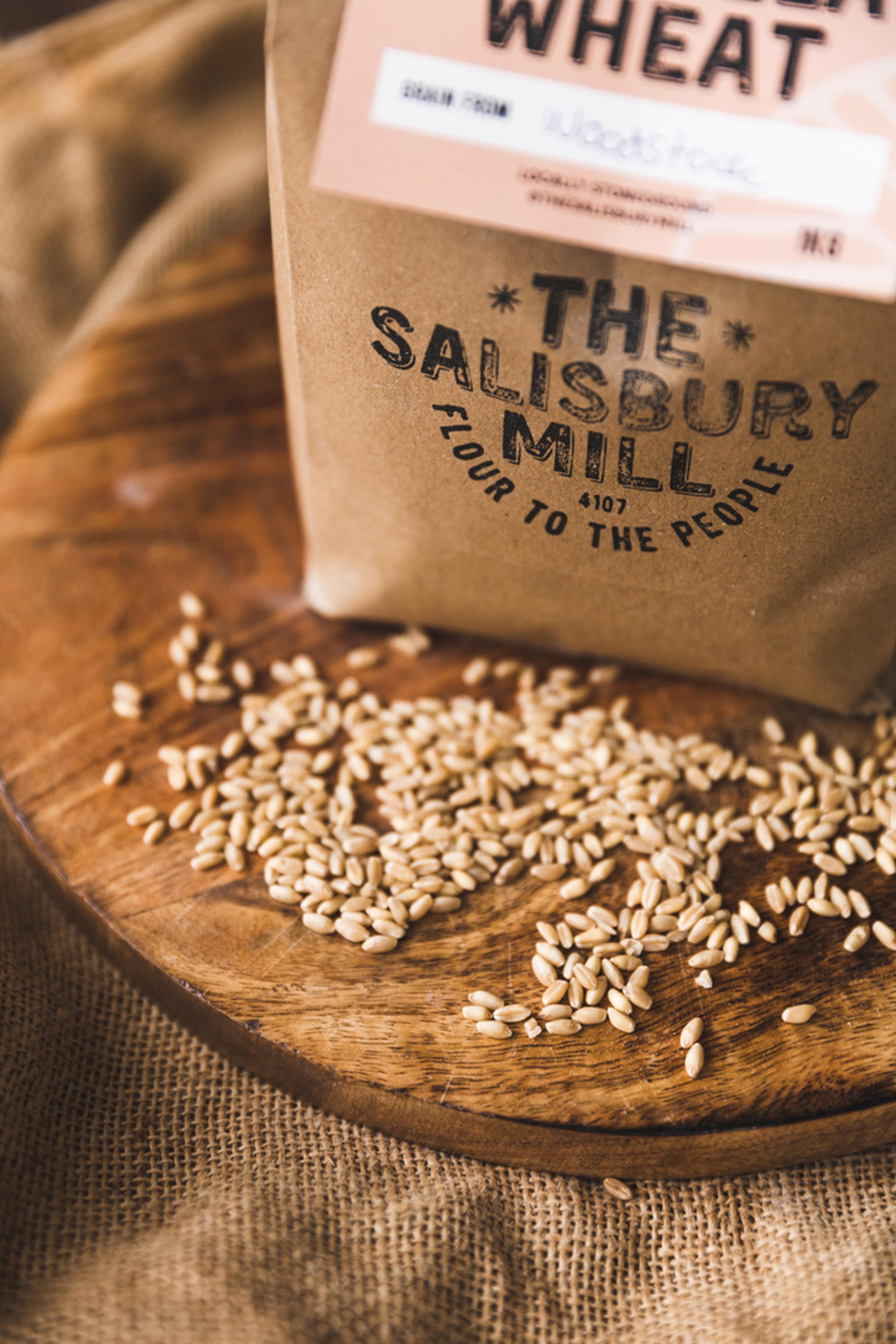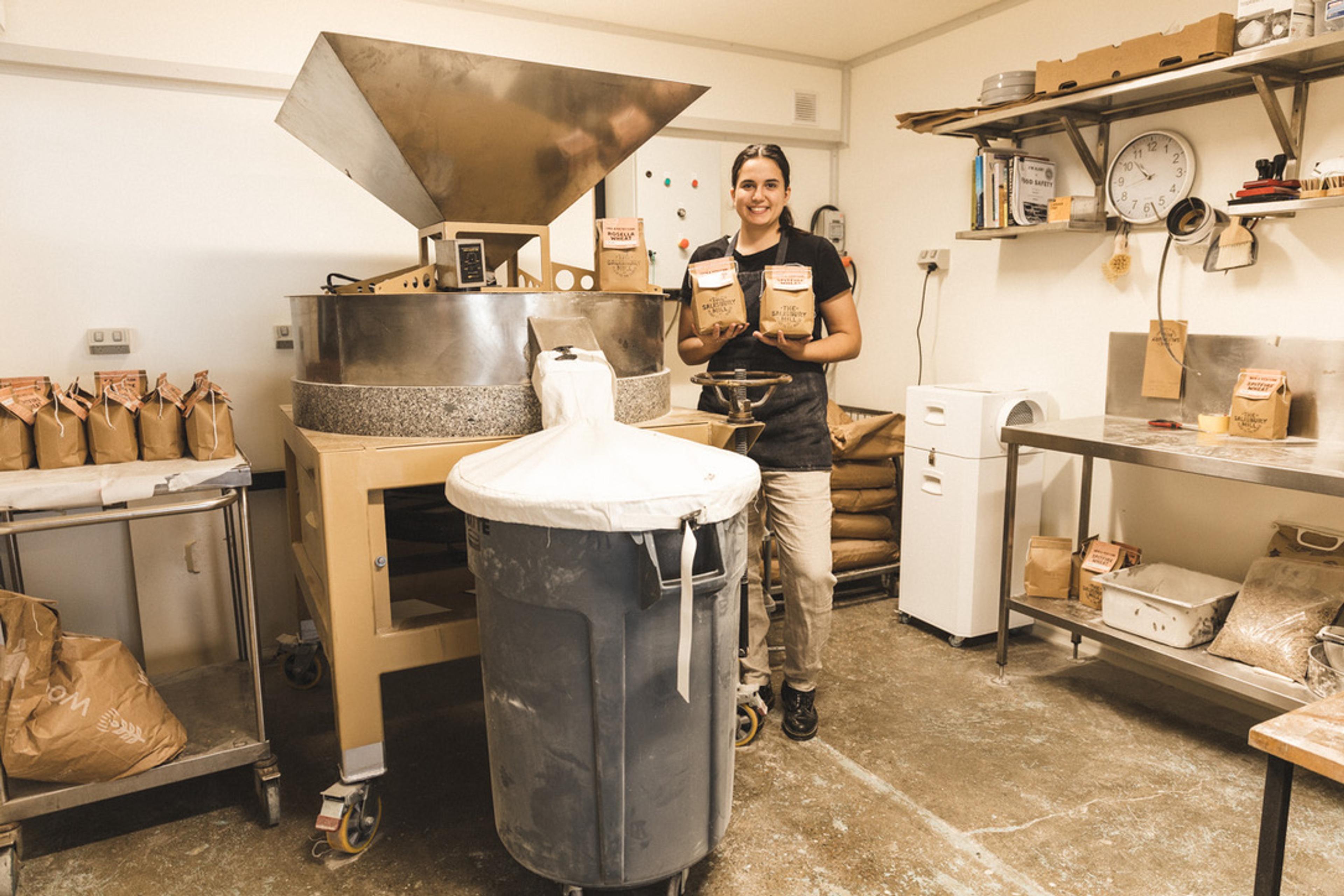The Salisbury Mill is Staying Grounded
In the heart of Brisbane, the city welcomes its first community-scale flour mill – the Salisbury Mill. An initiative from the Food Connect Foundation (FCF), a not-for-profit committed to creating regenerative food systems, this mill is a testament to the resurgence of traditional craftsmanship. Processing organic and native grains into whole flour for local bakers and households, the Salisbury Mill aspires to be a blueprint for resilient food systems across Australia.
In 2022, Sustainable Table provided funding to get the mill off the ground, and below, we share a little more about the story behind it all.
Starting from Scratch to Meet a Local Need
During the pandemic, flour, like many products at the time, was flying off the shelves of supermarkets so fast, it was difficult to keep up with demand. Simultaneously, artisanal bakers across the country were exploring how they could use unique grains, including native grains, to create innovative products. Connecting these dots, Robert Pekin, Emma-Kate Rose and the team at FCF realised the time was right to investigate how they might be able to bring a mill into their community to support local bakers.
They also anticipated that if they did it right, the impact of the mill could reach beyond Brisbane. FCF were keen to share the learnings they gleaned in the process of setting everything up, with other regional food hubs to strengthen local grain economies.
Cooking Up the Mill
FCF had long admired the work of Courtney and Ian at Woodstock Flour, leaders in regenerative grain growing and milling on-farm. “When they announced they were building their own mill from scratch, we asked them to build two!” says Emma-Kate. The funding for the mill came from a community grant awarded by the Queensland Government.
FCF followed Woodstock Flour’s process closely, marvelling at Courtney and Ian’s ability to source local granite for the milling stone. One of the biggest challenges was transporting a tonne of machinery from southern NSW to the Food Connect Shed in Brisbane. Three volunteers from the Food Connect community supported the installation of the mill, and the organisation stayed in close contact with Courtney and Ian, who shared advice, knowledge and lessons learned.
Initially, the mill was set up in an unused area of the Food Connect Shed however, renovations required a move, and Sustainable Table stepped in to fund the construction of a dedicated milling room, built specifically for the task. FCF had to consider Brisbane’s unique mix of humidity and heat during the design process. Additionally, approvals from the local council delayed the process. This was the first mill the council had encountered and they had to adapt their food safety standards to fit.
Milling Around
After a testing period, milling started up in late 2021. One of the biggest challenges FCF faced was that in 2018, TAFE had discontinued the milling certificate, and as a result, it was no longer a nationally recognised formal qualification. Woodstock Flour provided FCF with an operations manual, and they learned how to do things the old-fashioned way – through hands-on trial and error.
They have documented their learning and are slowly building out standard operating procedures. “It’s a process of ‘observe and do’ for trainees. In the absence of formal training, we’re taking the traditional training apprentice learning method of on-the-job milling,” shares Emma-Kate. Over time, trainees learn how to deal with the variability in the flour caused by day-to-day changes in grain temperature and moisture content.
Sourcing from Regenerative Grain Growers
Currently, the mill is sourcing grains from two farms in New South Wales. The strong and collaborative relationship FCF has with Woodstock Flour made them an obvious choice. FCF have been thrilled with the quality of the spitfire, rosella and rye grain varieties that Woodstock Flour has been able to supply the mill from their farm in Berrigan.
FCF has also provided contract milling services to Marlivale Farm, dryland organic brown and white rice growers in northern New South Wales. Marlivale Farm sells this flour direct to customers at their local farmers markets. The Salisbury Mill is the only small-scale operation milling rice flour in Australia, which opens up a niche market against imported products.
“Our long term plan is to build resilience in the regional supply chain, so sourcing grain closer to home is a high priority."
- Emma-Kate Rose, Food Connect Foundation
“Our long term plan is to build resilience in the regional supply chain, so sourcing grain closer to home is a high priority,” said Emma-Kate. The team has started to reach out to a few nearby farmers to start building relationships and support them in exploring what farming regenerative or organic grain might look like. In Australia, four grain milling companies control 80% of the market and these farmers are interested in being a part of something more meaningful. They recognise that this partnership is a rare opportunity for grain growers to share their stories and participate in the paddock-to-loaf experience. Farming organic grain also makes good financial sense as it commands a premium price.
However, there are a number of challenges. The Salisbury Mill has difficulty sourcing small quantities of grain as most growers deal in multiple tonnes. There are also significant upfront costs for growers if they want to trial a new type of grain and FCF is working closely with them to understand how they can address this. Finally, the unpredictable nature and scale of the impact of climate change add further complications.
Nevertheless, FCF is having difficult conversations, strengthening relationships and building trust with growers to bring resilient regional supply chains in South East Queensland to life.
Baking up a Storm
Both retail and wholesale customers have enthusiastically provided very positive feedback about the flour. Bakers and passionate foodies alike are excited about sourcing fresh locally milled flour made from regenerative and ethically grown grains. While conventional flour can have up to 500 additives, the flour the Salisbury Mill is selling is additive-free. This, combined with the quality and texture, provides an excellent flavour profile for bakers.
What Impact has the Mill Cooked Up so Far?
To date, the Salisbury Mill has…
- Milled over 6500 kg of grain
- Made $29,000 in sales
- Provided 1080 trainee hours
- Engaged 6 growers, 5 in the region
- 780 followers on Instagram
Beyond the hard stats, the impact is far-reaching with growers, volunteers, staff, bakers and eaters all eager to support the mill and get involved. Farmers are excited to learn more about growing climate-appropriate grains and having a direct connection with bakers. Bakers are discovering the benefits of fresh whole flour and reporting that it’s the best flour they’ve ever worked with. Volunteers and staff are learning valuable skills. Curious eaters are drawn to the Food Connect Shed to visit the mill and discover more about ethical and regenerative flour. These impacts are difficult to quantify but integral to growing meaningful connections and support for resilient regional food systems.
Rising Above the Challenges
Launching a venture like the Salisbury Mill has, and continues to have, its fair share of challenges. The initial aim of the project was to develop the mill into a self-sustaining, commercially viable social enterprise, with long-term aspirations as a First Nations-owned and operated business. Unfortunately, in late 2023 they were forced to pause operations.
Like many small businesses in the current economic climate, the mill is feeling the strain. Sales have been difficult to maintain. Retaining their trainee miller became unworkable and an over-reliance on volunteers has limited the mill’s effectiveness.
To top it off, a mini tornado tore through in December and ripped the roof off the Food Connect Shed. The damage to the mill was minimal, but it remains off-limits until the roof can be repaired.
What’s Next?
Works are underway to build a cafe and bakery at the Food Connect Shed that will use flour directly from the mill. It will be one of the shortest journeys from mill to loaf possible! The tornado set these plans back but they hope to have everything up and running again by October. In the meantime, volunteers are fulfilling small orders and the Food Connect Shed is running educational events to promote the benefits of community-scale milling.
The team will also be releasing a case study and hosting a webinar later in the year to share their journey with others. They hope this information will support bakers to source ethical and regenerative flour and inspire more flour enthusiasts to take up the call to start local milling operations in their hometowns. This was one of the original intentions behind the mill and is an ambitious long-term dream for the team at FCF – to grow resilient regional food systems across the country.
While the road has been anything but smooth, the Salisbury Mill serves as a beacon of possibility for many who understand the importance of developing strong connections to the food we eat. The impact of such an initiative is only likely to grow over time, inspiring many Australians to rethink how they grow, bake and eat.
For more information about the Salisbury Mill, check out their website.
Images by Imogen Doyle.
Help Sustainable Table support more community-minded and regenerative projects like the Salisbury Mill and donate today!





